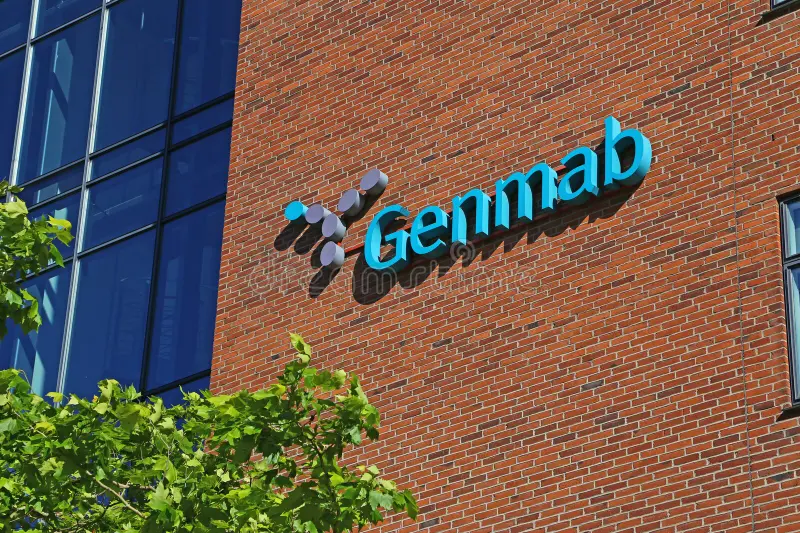
Genmab Presents Positive Epcoritamab Combination Data in Relapsed or Refractory DLBCL Eligible for Autologous Stem Cell Transplantation
Genmab A/S today shared new and highly promising data from its Phase 1b/2 EPCORE® NHL-2 trial (Arm 10, NCT04663347) evaluating its T-cell-engaging bispecific antibody, epcoritamab, in combination with rituximab, ifosfamide, carboplatin, and etoposide — a regimen collectively known as R-ICE — in adult patients with relapsed or refractory (R/R) diffuse large B-cell lymphoma (DLBCL) who are eligible for autologous stem cell transplantation (ASCT). The updated results, presented during a significant oral presentation at the 30th European Hematology Association (EHA) 2025 Congress, highlight the strong activity and tolerability of this combination therapy in a population with high-risk disease.
High Overall and Complete Response Rate in Transplant-Eligible Patients with R/R DLBCL
The study revealed an impressive Overall Response Rate (ORR) of 87% in the combination arm, with a Complete Response (CR) rate of 65% and a Partial Response (PR) rate of 23%. Importantly, 65% of the patients proceeded to autologous stem cell transplantation following their response. At a follow-up of six months, 81% of responses were ongoing, 74% of patients remained progression-free, and 100% were alive — reflecting a strong and durable depth of response in this challenging patient population.
Safety data were equally encouraging, demonstrating a manageable profile alongside high response rates. Cytokine Release Syndrome (CRS) was predominantly low grade (grades 1 or 2) and resolved in all cases. Importantly, there were no treatment-related discontinuations due to adverse events (TEAEs). The most frequently reported TEAEs were hematologic abnormalities, with 74% experiencing neutropenia, 68% anemia, and 68% thrombocytopenia — which are well-understood side effects related to this combination regimen.
Other noteworthy safety signals included 52% of patients experiencing low grade CRS (grades 1 or 2) — all cases resolved without progression to severe grade — and a single patient developing grade 1 Immune Effector Cell-Associated Neurotoxicity Syndrome (ICANS), which subsequently resolved. Importantly, there were no cases of clinical tumor lysis syndrome, a potentially serious side effect sometimes associated with aggressive treatment of hematologic malignancies. Infections were documented in 18 patients (58% of the study population), with 5 cases (16%) classified as serious; none resulted in a grade 5 event (death related to the study treatment).
Evidence of Benefit in Difficult-to-Treat Subgroups
Dr. Raul Cordoba, MD, PhD, Head of the Lymphoma Unit at the Fundacion Jimenez Diaz University Hospital in Madrid, Spain, explained during the presentation: “These results are particularly encouraging because many of the patients in this study had high-risk disease, having progressed rapidly after their initial treatment.” According to Dr. Cordoba, “This combination therapy of epcoritamab plus rituximab, ifosfamide, carboplatin, and etoposide (R-ICE) offers a potential new treatment option for patients with relapsed or refractory DLBCL, providing high response rates and a path toward potentially curative autologous stem cell transplantation.”
Additionally, among patients who progressed within 12 months after their first-round treatment (n = 20), the combination demonstrated an 85% Overall Response Rate, with a 55% Complete Response rate — further validating its activity in a group with unfavorable prognosis. Among those whose disease relapsed after more than a year following first-round treatment, the Overall Response Rate was even higher at 91% with a Complete Response rate of 82%. Furthermore, patients with a single prior therapy saw an Overall Response Rate of 88% with 68% Complete Response, while those who had undergone multiple lines of therapy (more than a single previous regimen) still demonstrated a strong Overall Response Rate of 83% with 50% Complete Response.
Epcoritamab’s Role in Transforming DLBCL Standard of Care
“The results from this trial highlight the potential of this investigational epcoritamab-containing regimen, especially in patients who progress quickly after initial treatment, and reinforce our joint efforts with AbbVie to further develop epcoritamab as a core therapy for B-cell lymphomas,” said Dr. Judith Klimovsky, Executive Vice President and Chief Development Officer of Genmab. “This underscores the ongoing opportunity for us to bring epcoritamab forward into earlier lines of therapy and a broader patient population. Our comprehensive EPCORE clinical trial program is dedicated to advancing epcoritamab — both as monotherapy and in combination — to address the significant unmet need in relapsed or refractory diffuse large B-cell lymphoma and other hematologic malignancies.”
While these results are undeniably promising, epcoritamab in combination with R-ICE for patients with relapsed or refractory DLBCL eligible for autologous stem cell transplantation is not yet approved by regulators, and its safety and efficacy have not been fully established in this setting.
About Epcoritamab and Genmab’s Commitment to Innovation in Hematologic Malignancies
Epcoritamab is a CD20× CD3 T-cell-engaging bispecific antibody administered subcutaneously. This novel approach brings together the body’s own T-cells and CD20-positive B-cells, allowing the patient’s immune system to attack and destroy the lymphoma cells directly. The combination regimen studied in the Phase 1b/2 EPCORE NHL-2 trial, adding epcoritamab to standard R-ICE therapy, shows strong activity and tolerability — offering a new path forward for patients with high-risk disease who previously had limited treatment options.
Genmab, together with its collaborators, is committed to improving outcomes for patients with hematologic malignancies through innovative medicines. The strong data presented today further exemplify their ability to translate cutting-edge science into effective, patient-centric therapeutic strategies.





